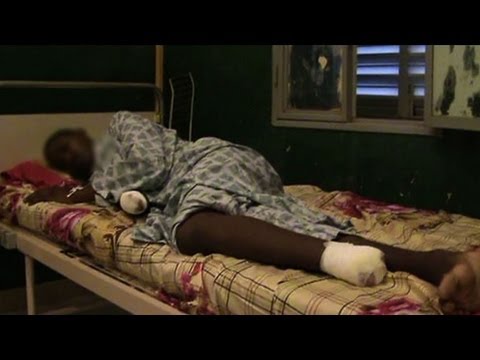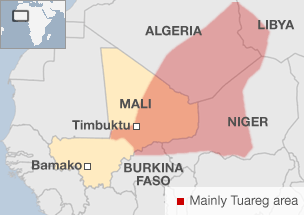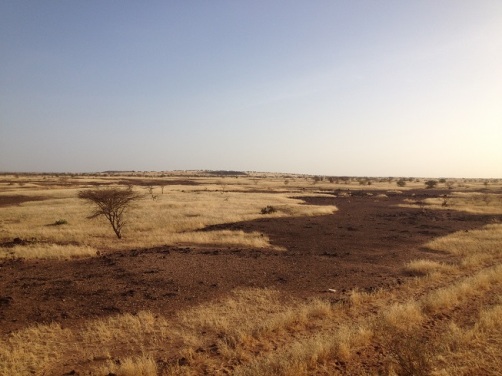Tags
In the grand scheme of things, there aren’t many benefits on offer in Mali, one of the poorest countries in the world and currently suffering an ongoing, often brutal conflict between government forces, French forces, the UN MINUSMA mission, multiple separatist Tuareg groups and Jihadists. However, this week I had the opportunity to spend a few nights out in the remote wilderness of Northern Mali, away from the light and noise pollution of the town, in the quiet and peacefulness of the Sahel region of Africa. On a clear cloudless night I was able to lie back on my camp cot and through my mosquito net see the full glory of the night sky. The milky way as I had only seen in photographs stretched out before me, its sheer magnificence and beauty made the hairs on the back of my neck stand on end. I was in awe of the cosmos above me, recognising half remembered constellations, Cygnus the swan gliding gracefully towards, but never reaching the vain queen Cassiopeia.
As I gazed up at the heavens, I was reminded once again how insignificant our planet is, just a small rock orbiting a common or garden star, one of billions within our own milky way galaxy, itself just one of billions more galaxies in the vastness of the universe. This brought to my mind the words of the late Carl Sagan when he spoke about the ‘pale blue dot’ in reference to a long distance photograph taken by the space probe Voyager 1 in February 1990 from a distance of some 3.7 billion miles. Every time I read the words he wrote about this photograph, I am struck not just by the beauty of his prose, but by the way he captures just how wondrous yet tiny our place in the universe is.
Continuing the quote from his book:
The Earth is a very small stage in a vast cosmic arena. Think of the rivers of blood spilled by all those generals and emperors so that, in glory and triumph, they could become the momentary masters of a fraction of a dot. Think of the endless cruelties visited by the inhabitants of one corner of this pixel on the scarcely distinguishable inhabitants of some other corner, how frequent their misunderstandings, how eager they are to kill one another, how fervent their hatreds.
Our posturings, our imagined self-importance, the delusion that we have some privileged position in the Universe, are challenged by this point of pale light. Our planet is a lonely speck in the great enveloping cosmic dark. In our obscurity, in all this vastness, there is no hint that help will come from elsewhere to save us from ourselves.
The Earth is the only world known so far to harbor life. There is nowhere else, at least in the near future, to which our species could migrate. Visit, yes. Settle, not yet. Like it or not, for the moment the Earth is where we make our stand.
The section in bold really strikes a chord with me. As a species we seem to spend so much time and energy in conflict with other groups, countries, cultures, religions and so on. Perhaps its in the make up of humans, the need to secure the best advantage for ourselves, our kin, our tribe, our nations or whatever particular level of society we wish to identify ourselves as part of. The key issue here I think is ‘difference’. We fear it, we fear the ‘other’, as a species we fear that which we do not understand, the differences between us form the boundaries of conflict. Wherever these boundaries occur, be they physical, cultural, national, tribal, familial, there is tension, conflict, distrust, fear and hatred. And yet in the relative vastness of the cosmos, our constant squabbling and fighting seem just so, well, pointless really. An over simplification, yes of course, but when viewed through the cosmic lens, when we see our place in the universe, I think I have a point.
Mali itself is currently in the grip of a conflict that has elements of all of the examples I listed above. A former French colony with arbitrary borders that were drawn on the map by Europeans. For centuries before there were no borders in the region and the nomadic tribes that lived there would move from place to place as they desired. A region known as ‘Azawad’ was the traditional lands of the Tuareg and spanned parts of modern day Mali, Niger, Algeria, Burkino Faso and Libya.
Map showing the traditional Tuareg region of West Africa
Since the imposition of the current borders, the north of Mali, has been bound to the governmental rule of the southern capital Bamako, a place with markedly different ethnic groups and little in common with the Tuareg people. Mali is one of the poorest countries in the world with an estimated GDP in 2012 of just $641 per capita according to Wikipedia (for comparison, the UK 2015 figure is $44,118). There is little interest or will to invest much of Mali’s meagre finances in the poor cousin that is the north and unsurprisingly the predominantly Tuareg inhabitants being unimpressed with this, have regularly rebelled over the last few decades. The latest uprising began in 2012, with the MNLA (National Movement for the Liberation of Azawad) leading the charge to defeat Malian Government forces. Initially the MNLA was assisted by a number of Islamic groups including Al Qaeda in the Islamic Magreb (AQIM), the Movement for Oneness and Jihad in West Africa (MUJAO) and Ansar Dine. Government forces were soon crushed and the independent state of Azawad was declared. However the honeymoon didn’t last long and the Islamic groups themselves turned on and defeated their erstwhile brother in arms, the MNLA and took control of the north, imposing harsh Sharia law across the region later in 2012.
Although the population of Mali is 95% Muslim, it is by and large, a relatively tolerant ‘islam lite’ version that is practiced. Alcohol is accepted in the same way it is in the west, music and dancing are a big part of Mali culture, and Malian women enjoy wearing the bright and colourful clothes commonly seen across West Africa. The arrival of brutal Sharia imposed by hard line fundamentalists put a stop to all this and unsurprisingly, was not popular with the majority of people. All alcohol and cigarettes were publically destroyed, music and dancing was outlawed, and brutal punishments for transgressors were carried out (the stone block used for chopping off hands and feet is still visible in the main square in Gao complete with blade marks and blood stains).
 A victim of the brutal Sharia law imposed by MUJAO in Gao, Mali in 2012. Convicted as a thief by the sharia court, his right hand and left foot have been publicly amputated.
A victim of the brutal Sharia law imposed by MUJAO in Gao, Mali in 2012. Convicted as a thief by the sharia court, his right hand and left foot have been publicly amputated.
Once an iron grip was established in the North, the Islamists turned their eyes to the south of Mali and began to advance towards the capital Bamako. In 2013, the French, at the request of the Malian Government, deployed their armed forces and within few weeks, retook the north and ejected the islamist groups from the towns and cities. This was followed later that year by the UN establishing MINUSMA (United Nations Multidimensional Integrated Stabilization Mission in Mali) in order to provide stability and assistance during the restoration of infrastructure and governance in the region.
French troops drive past a MINUSMA convoy forming up in Gao. The UN armoured personnel carriers are manned by soldiers from Bangladesh
Since 2013 there has been a slow and painstaking dialogue between the several disparate armed groups claiming an interest in the future of Northern Mali. At the last count there were several, each with influence in different regions and each with their own agenda, and each with their own name based on the theme of popular representation. This kind of reminds me of the ‘Life of Brian’ scene when Brian tries to join the ‘Popular Front of Judea’ only to be told to:
“f**k off, were the Peoples Front”.
“Whatever happened to the popular front?”
“He’s over there”
All shout “SPLITTER”………..
Anyway, I digress (but I don’t care, its my blog after all) but the negotiations finally got all of the armed groups to sign up to a fragile ‘peace agreement’ this year and although tensions remain high, by and large it is holding. Of course the Jihadist groups are not part of this agreement and are an additional overlay woven into the fabric of the current situation and a complicating factor. As usual it is the young, uneducated, impressionable and disaffected youth, brainwashed with hateful religious dogma by wicked and manipulative authority figures, that are recruited to carry out IED attacks and ambushes on a variety of targets, predominantly MINUSMA, that are part of the effort to restore stability to the region. Add to the mix high levels of lawlessness due to the prolonged absence of effective law enforcement; banditry, kidnapping, drug and people trafficking, are all effective ways for criminal elements to make money in cash strapped Mali.
A typical view of the vast Sahel wilderness of Northern Mali
Anyway, the clumsy and rambling point I am trying to make, is that Mali has many contributing factors, many layers of complexity, that shape the current conflict here. The everyday experiences of many people here are totally different to the relatively privileged and cossetted lifestyles we enjoy in the first world. To the ordinary inhabitants of Mali, the issues at the heart of the conflict are massively important to them, it is their world, their universe. It does not matter to them that we live on an insignificant planet tucked away in an obscure galaxy in an incomprehensibly large expanse of space. They are just trying to survive, to make the best of what little they have to live their lives and do the best they can for their future generations. We could apply the same examination to any number of ongoing conflicts around the world and identify similar reasons. Fear of difference, struggles for power and self interest between different groups across all hierarchical levels from personal to international. All of these will inevitably lead to conflict between our species. So whilst I wholeheartedly agree with and embrace the sentiments, observations and visionary outlook for our future made by Carl Sagan, I am alas resigned to the reality that the human race has an awfully long journey to make before any of his great visions can ever become a reality.
Can we succeed in making this journey? Will we ever manage to learn to get along, to put aside our fear of difference and work together to make the world a better place for humanity? Who knows, but in the meantime, I’m going to enjoy my opportunity to gaze at the magnificence of the Mali night sky and reflect how lucky I am to even exist in such a wondrous universe. Oh look, a shooting star……..
‘





